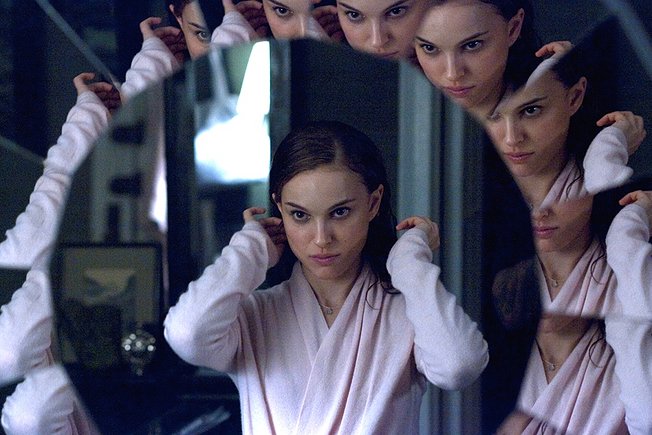Of all the films that have proved themselves worthy of award nominations this season, “Black Swan” is perhaps the most relentless and intimidating. The story follows devoted ballerina Nina Sayers (Natalie Portman) as her dance company creates a modern version of the classic production of “Swan Lake.” Don’t let the bit about dancing fool you – this film is as much about ballet as “The Social Network” is about Facebook. The catch is that the lead role Nina fights for is two-sided – virtuous and innocent as well as calculated and lustful. More than a certain amount of skill is needed to dance the dual part of the White Swan and the Black Swan, and for Nina, mastering that skill calls for a venture into a side of her personality she never knew existed.
This is a film that mercilessly puts pressure on its protagonist from all sides, involving a disturbingly overbearing stage mother (Barbara Hershey), a demanding and forward dance instructor (Vincent Cassel), and a contentious relationship with a rival dancer (Mila Kunis). All of this, coupled with the naturally relentless life of a performer, is enough to make anyone start to crumble from the inside out. How unfortunate that those problems only make up an outer shell of what Nina has to live with. Issues of self-image, perfectionism, ambition, and sexual empowerment weave through her descent into her own personal unknown. The trick, of course, is learning to manage them all in a way that won’t drive her over the edge.
Natalie Portman’s performance alone is worth seeing this film for. She’s an actress who’s known for her charm and likability, so to see her in a role as focused and challenging as this one should be an entirely new experience for viewers. A struggle against the dark side is always compelling to watch, but to see it rage within a single person is fascinating and terrifying. If it’s true that every person has a sinister side, Portman’s performance is proof that discovering this fact is secondary to the frightening task of living with it. What’s more, viewers automatically cling to Nina as an underdog, so the further into her shifting identity she gets, the more viewers are jerked around along with her.
Director Darren Aronofsky is known for his uncompromising treatment of personal stories on film. Much like his fast-paced and brutal delivery of “Requiem for a Dream,” his work on “Black Swan” leaves nothing to the imagination, no matter how ugly, shocking, or fantastical. His films have a knack for prompting an audience to take a good, hard look in the mirror after he’s done with them. He’s always been a director who knows how to put a camera in motion in jarring and effective ways – and as this is a movie that incorporates dance, the finished product looks and feels twice as engaging to audiences.
Along with an Aronofsky picture comes a body of musical work by composer Clint Mansell, and “Black Swan”’s is definitely worth raving about. Fans of ballet and of classical music will get a kick out of hearing the score: a reworking of Tchaikovsky’s original music for Swan Lake, Mansell’s compositions take the grand themes from the classic stage story and modernize them into an almost uncomfortably intimate and tension-filled soundtrack.
The frustrating thing about Black Swan is that viewers, like Nina herself, will likely have a hard time finding their footing within this world. Even so, the payoff of having stuck with her until the end will lead audiences to a baffling finale that they’ll have to see to believe.
4 out of 4 stars









